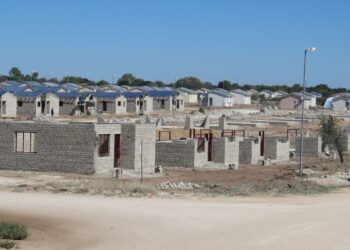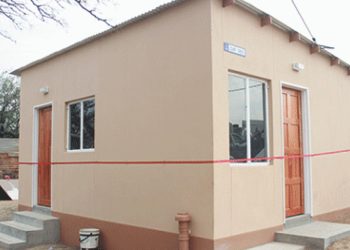
First National Bank’s House Price Index indicates a continued slowdown in housing transaction volumes, but the pace of decline is easing.
The 12-month average contraction in the first quarter of 2024 was 17.6%, an improvement from 19.1% in the previous quarter.
While still below the steep 37.3% drop recorded in the first quarter of 2023, the latest figures suggest a potential stabilisation in the housing market.
The overall national house price stood at N$1,229,776 at the end of 2024’s first quarter, slightly above the N$1,214,674 at the end of 2023’s fourth quarter and N$1,226,064 recorded in the first quarter of 2023.
FNB Market Research Manager Mandisa Van Wyk said the average prices for the central, coastal, northern, and southern regions stand at N$1,581,000, N$1,397,000, N$854,000 and N$864,000, respectively.
Van Wyk noted that house prices and buying activity subdued with a 12-month average growth of 0.3% in Q1 2024, compared to a growth of 1.5% in Q4 2023, both lower than the 2.4% growth recorded in Q1 2023.
“The growth rates for the small, medium, large, and luxury segments stood at -1.1%, -2.4%, 7.8%, and 4.3%, respectively. From a regional perspective, the central and northern regions remain in negative territory at -0.3% and -2.7%, respectively, while the coastal and southern regions recorded lower growth rates of 0.4% and 5.8%, respectively, from the previous quarter,” she said.
Meanwhile, transaction volumes remain contractionary for the seventh consecutive quarter, at a 12-month average growth of -17.6% in Q1 2024, a slight improvement from a -19.1% at the end of Q4 2023 and significantly above the -37.3% recorded in Q1 2023.
“The contraction in volumes was again noted across all four regions, particularly the northern region volumes, which constitute 36.1% of the share of all transactions, which declined by -30.0% on a 12-month average basis,” she said.
From a segment perspective, the contraction in growth was observed in almost all categories at -26.1%, -26.2%, and -16.7% for the small, medium, and large segments, respectively.
The luxury segment recorded muted growth at 0.0%.
“Therefore, subdued buying activity in the residential property market was still observed. The current elevated interest rate environment is hampering the buying activity of households as cash flow pressures persist,” said Van Wyk.
She noted that this is demonstrated in the low private sector credit extended to households, which now stands at 2.7% (June 2024) after remaining stagnant at 2.2% for three consecutive months.
“More specifically, mortgage credit growth improved slightly to 1.9% in June 2024 from 1.5% in May 2024. However, consumers’ disposable income remains strained, and this limits the ability to purchase mortgages and take up any other additional debt,” she said.
Furthermore, inflation continues to ease, and FNB expects further declines. However, it said the repo rate remains at a high of 7.75% with the cutting cycle forecasted to commence in the latter half of 2024.
“Therefore, buying activity is again expected to remain constrained over the remainder of 2024 and the first half of 2025, as the cutting cycle will be too shallow to induce a significant rebound in the residential property market,” she said.











